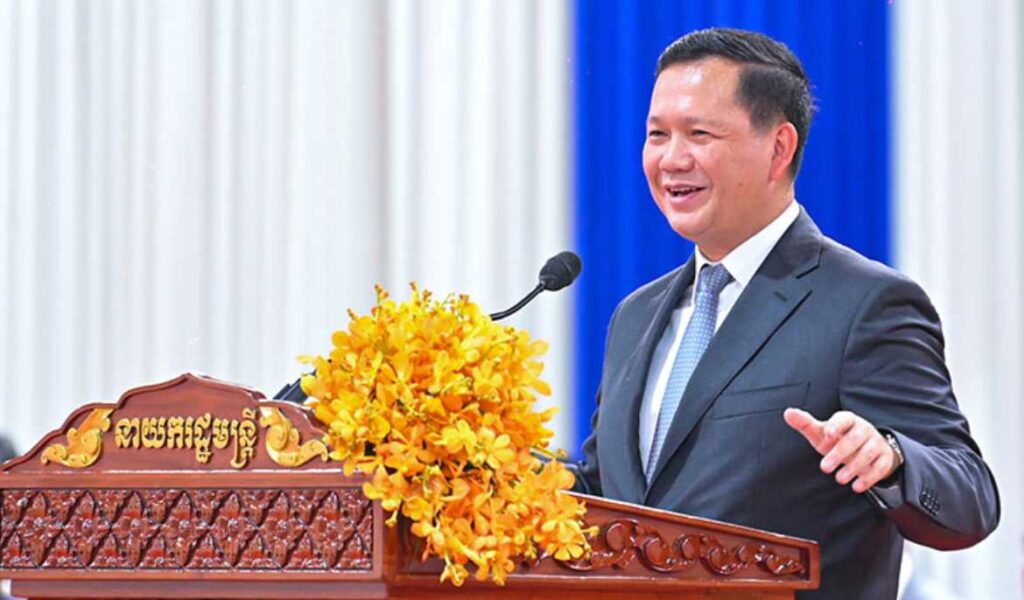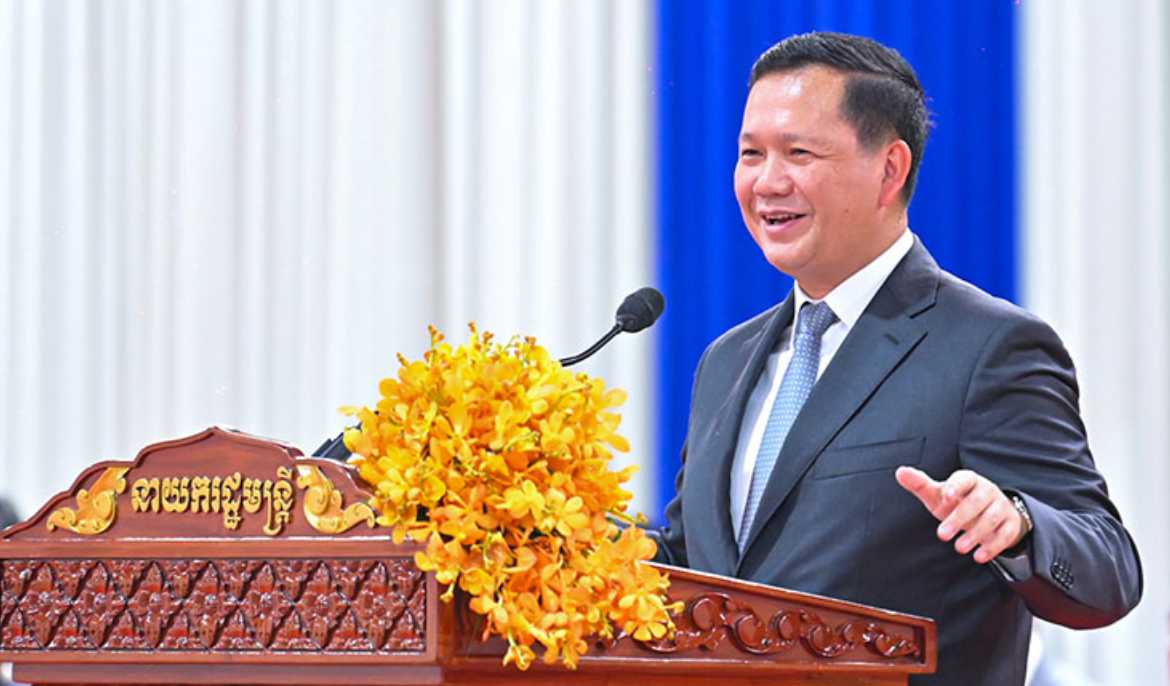Prime Minister Hun Manet yesterday inaugurated RMA Cambodia’s new production line and Ford assembly plant in Pursat province, describing it as a source of pride for all Cambodians.
Addressing the gathering, Mr Hun Manet reaffirmed that the Royal Government is committed to attracting new investors while supporting the continued growth of existing ones, leveraging the peace and stability the country enjoys.
Among those who attended the inauguration ceremony were Kevin Whitcraft, CEO of RMA Group, Cabinet ministers and other dignitaries.
“Thanks to Cambodia’s peace and stability, we’ve been able to develop across various sectors, unlike countries affected by conflict, where progress remains out of reach,” Mr Hun Manet said.
Cambodia is currently home to nine car assembly plants, six located in special economic zones and three outside, he said, adding that peace and security have been key factors in attracting these investments.
Reflecting on the transformation of Pursat and Kampong Chhnang provinces, which were once considered economically underdeveloped, the Premier said these areas are now experiencing dynamic growth thanks to major investments like the Ford automobile assembly plant. Such developments have created tens of thousands of jobs and serve as a model for Cambodia’s future industrial expansion.
He also touched upon the country’s broader economic progress, noting that in 1990, Cambodia relied heavily on imports. Today, however, the country not only produces and exports agricultural products and electrical components but also hosts automobile assembly operations.
In a matter of three years, Pursat province has experienced significant industrial growth, with the number of factories increasing from 300 to 404 by 2025, generating over 15,000 jobs.
He further highlighted the government’s ongoing efforts to simplify procedures and reduce regulatory burdens to make it easier for businesses and investors to operate in Cambodia.
Mr. Hun Manet stated that the primary benefit of foreign investment is job creation, which enables citizens to afford new cars and helps reduce the import of used cars from abroad.
Underscoring Cambodia’s shift from merely assembling imported parts to producing and exporting domestically manufactured components, he encouraged local companies to strengthen partnerships and increase the use of locally sourced materials to support the country’s growing industrial sector.
Mr Hun Manet urged investors to choose Cambodia as an investment destination, highlighting the country’s advantages in peace, stability, political and macroeconomic conditions, as well as demographic benefits.
Kevin Whitcraft, CEO of RMA Group, emphasized that RMA Cambodia is a leading player in the country’s automotive industry. He said that Ford has gained strong support from the Cambodian people, maintaining the number one position in the new car market for six consecutive years from 2019 to the present.
Whitcraft also highlighted that beyond importing vehicles for local distribution, the company initially invested $21 million to establish a car assembly plant on a 5-hectare site. In 2022, the plant was officially inaugurated under the patronage of Prime Minister Hun Manet.
Since then, the company has launched a new sub-assembly plant, generating numerous job opportunities. It has also expanded its total investment to $26.8 million and increased the factory’s size from 5 to 12 hectares.
According to Kevin, RMA Cambodia has upgraded its production line from CKD (Completely Knocked Down) to IKD-1 (Intermediate Knocked Down), significantly boosting its production capacity to over 10,000 vehicles per year.
Importantly, the company has received international recognition for its ‘Made in Cambodia’ chassis numbers from the Society of Automotive Engineers (SAE International).
To date, the company has assembled 7,492 vehicles, including the Ford Ranger Pick-Up (Wildtrak, XLT, XL) and Ford SUVs (Everest Titanium, Everest Sport, and Territory).
“I personally believe that Cambodia’s success during this period stems from fundamentally American values – a free market economy, a multilateral currency system without foreign exchange controls, business ownership rights, political and economic stability, and support for the private sector and entrepreneurship,” Kevin said.
“I believe this will allow us to continue the successful relationship between Cambodia and the United States,” he added.



